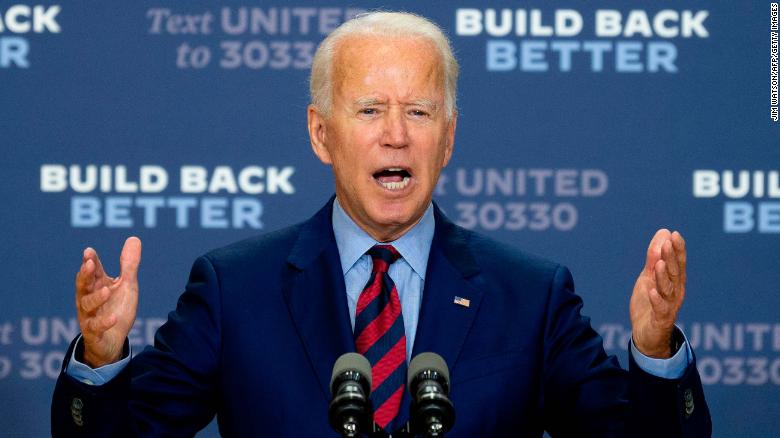Which Path Forward for Biden’s Stimulus?

Unalloyed Good News
Along with getting a new course ready for the Spring semester, I’ve been chewing over the Biden team’s stimulus proposal. The unalloyed good news is that it seems that both on the part of the incoming adminstration and Congressional leadership (judging from their reception of the porposal) that the Democratic Party has decisively broken with the austerity thinking (really, Rubinomics) that was way too influential in the Obama Administration.
As Scott Lemieux says, this is a large package, almost 10% of GDP. It puts really substantial sums where they need to go: COVID vaccination and other public health measures, significant direct aid to families, as well as the state and local government aid that was left out of the previous stimulus bill.
So the top-line is all positive. However, there are some outstanding questions I have about the bill which are worthy of discussion.
$2,000 or $1,400
As a matter of process, no one’s hands are entirely clean here: Biden campaigned in Georgia on $2,000 checks rather than $1,400 checks, AOC had an amendment to raise the $600 to $2000 (i.e, an additional $1,400) and Pelosi forced a vote on the same thing. But that’s ok, because we should all admit that procedural hypocrisy is the nature of politics, and it’s what the government actually does to/for people that matters most.
But that means the tenor of the debate between the left and the center-left should be toned down. What AOC is doing, by pushing for an additional $2,000 vs. $1,400 isn’t a betrayal of the Democratic Party, it’s an extra $600 (working out to about $150 billion out of a $1.9 trillion package) and exactly the kind of applying pressure on Biden from the left that the left of the Democratic Party said it was going to do when it endorsed Biden in the first place.
At the same time, though, it’s unhelpful for some Twitter commentators to make $2,000 a matter of political purity, since there’s bound to be some kind of splitting the difference between the two positions. The reality is that the $1,200 checks from the original CARES Act were quite popular (indeed, they played a significant role in making the 2020 election as close as it was), and no one’s going to be mad about getting two checks instead of one.
Bipartisanship or Reconciliation
There is one thing about the American Rescue Plan that I find really confusing, though: it’s got so much that I (and Congressional Democrats) like, from a public health jobs program to OSHA COVID standards to funds for international COVID responses to funding for public universities and HCBUs to emergency paid leave for 106 million workers to expanding kurzarbeit programs to SNAP/WIC benefit increases to a $15 per hour minimum wage to massively expanding the Child Tax Credit and the EITC, that it doesn’t really strike me like a plan that Republicans in the Senate would ever go for.
What it does sound like is a bill that you’d do through reconciliation with only Democratic votes, a way of getting through a year’s worth of Administration and Caucus priorities done in one go, and indeed Budget Chairman Bernie Sanders seems eager to do so. However, from public remarks from the Biden camp, it doesn’t sound like that’s the direction they want to go in, which seems like odd strategy to me since (the complicated question of whether the $15 minimum wage would pass muster under the Byrd rule aside) a big spending bill is exactly the sort of the thing you’d want to do through reconciliation.
There’s only two explanations that I can think of for this particular strategy. One is that this package is a “starting at 200% of what you want” opening bid for negotiations with the Republicans. If that’s the case, a lot of the most important stuff in this bill is going to be jettisoned in negotiations, which means that the Biden team need to work very closely with Democrats in Congress, in activist circles, and in the media about managing expectations and about identifying what things are ok to compromise on and what aren’t. I haven’t seen much in the way of any public signal that this is what they’re doing.
The other explanation is that they’re planning to enter into negotiations with Republicans over the package, but if (and let’s be honest, when) Republicans prove to be intransigent, then switch over to reconciliation after having extended the hand of bitpartisanship. In principle, I’m not opposed to this strategy, but the danger is that we get into a Max Baucus Gang of Six scenario where Republicans keep dragging out negotiations forever, which could badly delay the twin efforts to fight COVID and restore the economy.
Either way, I hope the Biden team have a clear, workable plan, because a lot hinges on getting the first big bill right. And ultimately, they’re going to need to get comfortable with reconciliation, because it’s going to have to be the centerpiece of their legislative strategy.
